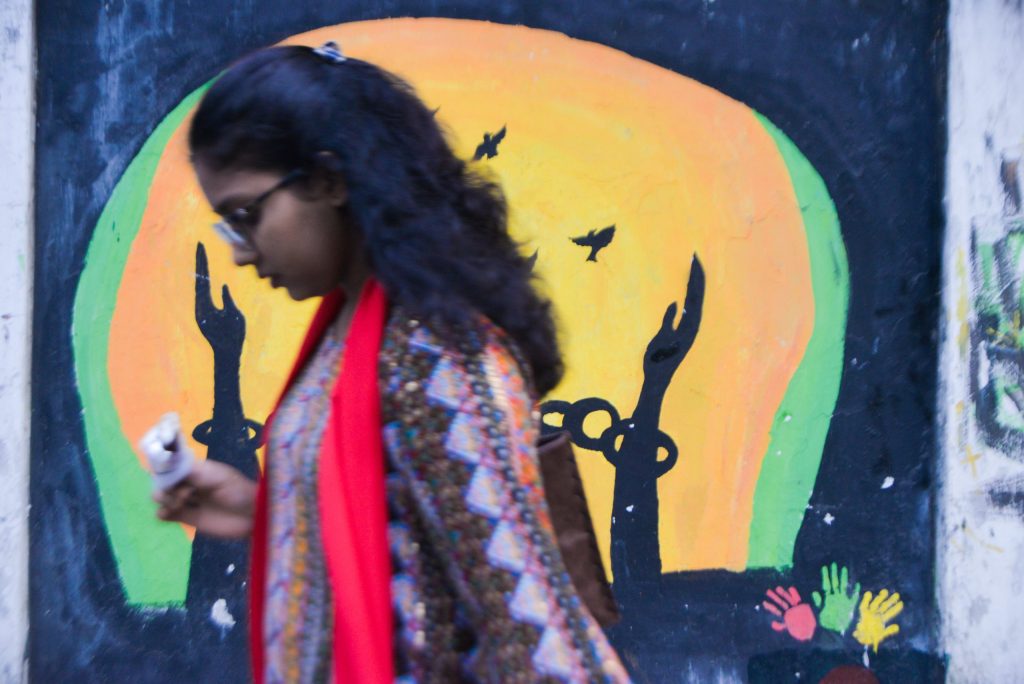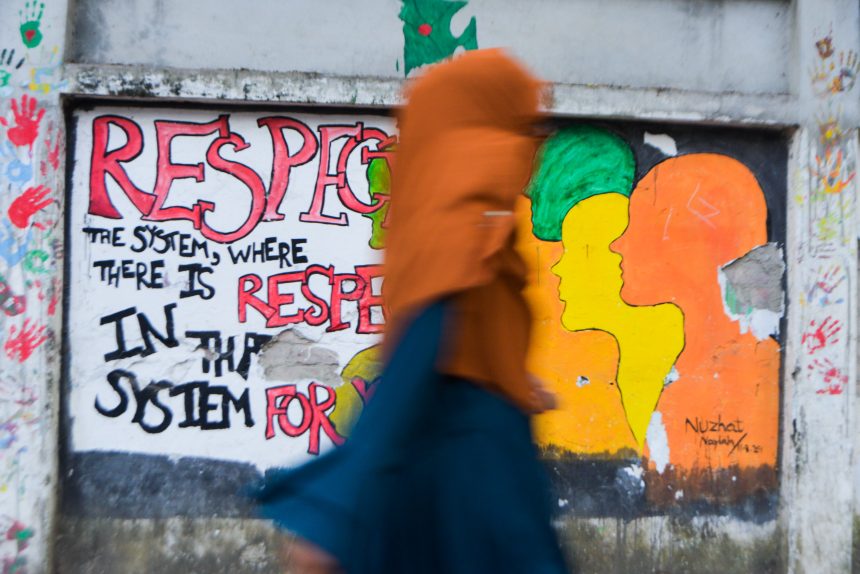“The country is doing great. In just a year, it has become like America, and we are all doing wonderfully.”
Such words sound like a dream — as if there is no more grief, no more anger, no more pain. It feels as though people are floating in a dream, where all roads are smooth, the administration is alert, law and order is flawless, and there is no fear in people’s hearts. Hunger and poverty? Simply gone!
But is this truly the reality?
The shattered mirror of a horrifying incident in Muradnagar, Cumilla forces us to confront our brutal truth. A woman was raped, and then a video of her being abused, stripped, was spread on social media. Even without seeing or hearing it directly, such images rip apart the very mask of our so-called civilisation.
How far have we really come in a free country? Where local elders should have offered protection, reassured the victim and ensured her proper medical care, instead a group of thugs surrounded her, celebrating their depravity by filming her ordeal — subjecting her to countless more mental violations as those clips spread online with lightning speed.
It must be said: the roots of this culture of impunity run deep. And that is precisely why such horrific events will not stop at Muradnagar alone. Before the shock of this incident could even fade, news emerged from Gaibandha, where an accused youth was beaten to death by a mob over the rape of a child.
In truth, when the state fails to protect the most basic dignity of its citizens, conscience itself begins to die, and morality steadily erodes until it hits rock bottom. Then inhumanity becomes part of everyday life.
Yet, you can be sure the same lines will be rolled out again: “These are isolated incidents, every case will be properly investigated, and no matter who is responsible, they will face justice.” Along with that tired phrase: “We are monitoring the situation.”

Meanwhile, the public is becoming numb to these events. Eyes are wearing out from watching a system without justice, ears are going deaf from false promises, and a grey crust of inertia is settling on people’s minds.
On the other side, unrest is growing on the streets. The Chattogram port has practically come to a standstill due to an indefinite strike by revenue officials. Cargo handling is suspended, imports and exports are frozen. Business leaders, in an anguished press conference, admitted their helplessness, saying the strike is causing losses of about Tk 2.5 billion a day.
Traders are desperate, and ordinary citizens are fearful — no one knows how high prices will rise, or where it will all end.
In the midst of this, the political arena is heating up. There is uncertainty about the election, questions over the tenure of the interim government, a flurry of demands from various groups, and ongoing protests — all combining to create an even deeper sense of instability. Fear, uncertainty and anger are growing, no longer hidden under the surface.
The cries of the raped woman in Muradnagar lash at our moral backbone, our sense of humanity, our dulled conscience and protesting spirit. They rattle the rusted structures of the state once again, demanding the kind of sweeping reform that was the spirit of last July’s uprising.
One year on from 36 July, the time has come to tell the whole truth, not just in part. The time has come to open our eyes and see in black and white, to listen with full attention, and to raise our voices to say: No, this is not the Bangladesh we want!


